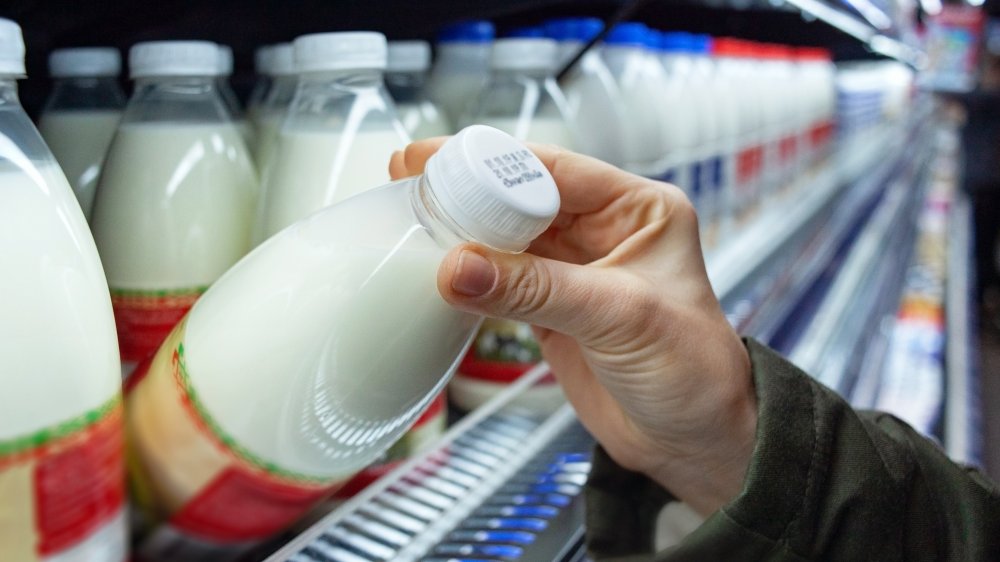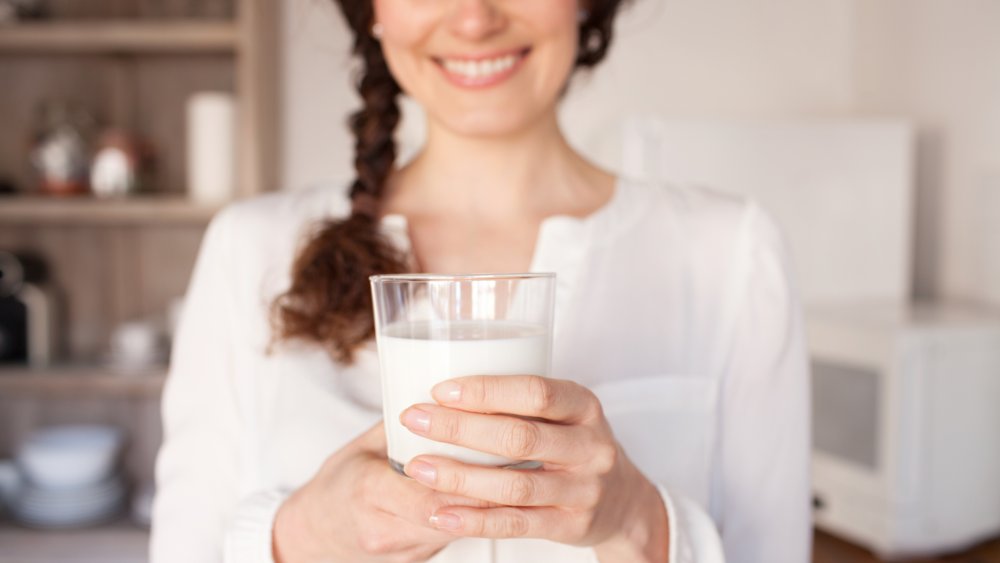Is It Safe To Drink Milk Past The Expiration Date?
If you're one of the millions of cautious Americans who have thrown out food items because they were past the expiration date, it's time to have a closer look at what those dates actually mean. That's a lot of unnecessary food waste.
The FDA doesn't regulate the date labeling of food products, with the exception of infant formula (via Healthline). So, milk may be stamped with 'use by,' 'sell by,' or 'best if used by,' according to the whim of the dairy manufacturer. None of these labels give any indication of food safety. Instead, the date listed indicates the last date that the milk is expected to be at peak quality.
Lindsey Pasieka, an investigator for ConsumerSafety.org, told Business Insider, "'Sell by' dates tell a milk seller, like a grocery store, when the product should leave the shelves — either in a customer's arms or in the trash. For many, 'use by' and 'sell by' are essentially marketing terms. These allow milk producers to tell consumers when the peak freshness of the product is. They do not indicate the exact date the milk will go bad."
If it smells fresh, it's probably fine
The date a gallon of milk will actually spoil depends on a number of factors. Where and how it's stored, the type of milk, and type of packaging, all factor into how long it will stay fresh. Ideally, milk should be tightly sealed and stored at between 38 and 40 degrees F. Under these conditions, any unopened milk should last five to 10 days past the date listed (depending on the type of milk), and opened milk should last four to seven days past the date. Once milk is poured and sitting at room temperature, experts recommend tossing it after 2 hours (via US Dairy).
Oh, and you know that container of milk in the door of your refrigerator? Well, move it to the back of the fridge, please. Sure, it fits perfectly in the door, but you should move it anyway. Continual opening of the refrigerator door leads to a lot of temperature fluctuation in that area, which in turn leads to faster spoilage. Instead, store milk as far away from the door as possible, like at the back of the fridge and on the bottom shelf.
If in doubt, use your senses. Regardless of the date, milk that smells sour or starts to look curdled is past its prime, even though if you accidentally try it and then find out it's not in the best shape, you still might not get sick. Rolf Halden, an environmental health engineer and researcher at Arizona State, told Discover, "Humans have an innate ability to sense issues with food, ranging from appearance to smell to tactile clues. While this is not perfect, it enables us to quickly reject food that potentially is compromised."


